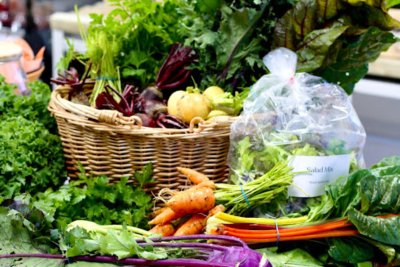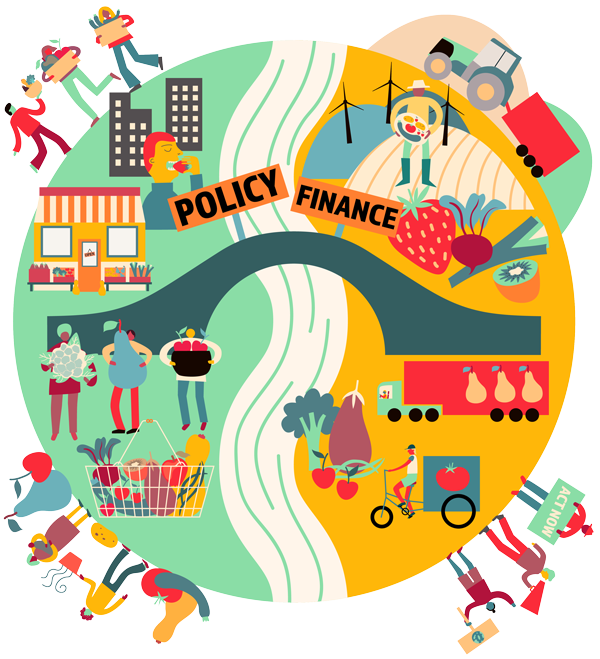 Image by Hans Braxmeier from Pixabay
Image by Hans Braxmeier from Pixabay
House of Commons committee tells Government to ‘drag public food procurement standards into the new decade’
The Environment, Food and Rural Affairs (EFRA) committee has become the latest group to urge Government to make public sector food reflect the UK’s net zero commitment and support UK producers better.
The cross-party EFRA committee backed nearly all Sustain’s calls for improvements to public sector food standards, including supporting small businesses, improving nutrition and animal welfare and using public sector food to lead a transition to more climate friendly diets.
The RSPCA today issued their own call to government to improve the animal welfare of public sector food, calling the current standards ‘baseline at best’ and warning that our public institutions risk propping up the worst kind of farming practices.
Last week, a Countryfile investigation highlighted how current procurement standards are undermining British producers. They found that an ‘opt-opt’ clause related to cost, and a complete lack of enforcement of standards means food which doesn’t meet UK standards is routinely offered to public sector caterers. The investigation highlighted concerns that if the UK allows more low-grade food (like chlorine-washed chicken) into the UK as part of new trade deals, schoolchildren and hospital patients could be natural recipients of this produce if standards aren't improved.
The Committee’s recommendations include:
- Improving the monitoring and enforcement of compliance with food buying standards, using existing inspection bodies such as Ofsted (for schools) and the Care Quality Commission (for NHS Trusts), or where these bodies don’t exist, monitoring via annual surveys to be published by Defra.
- Making the standards mandatory across all public sector bodies in England (which would mean expanding their remit in England to include local councils and schools, as well as the NHS and some care homes).
- Removing the exemption that allows caterers not to follow the standards on the basis of cost.
- Overhauling the Government Buying Standards to make them stronger on nutrition and animal welfare, and to make them reflect the UK’s net-zero emissions targets.
- Supporting British producers and providing a market for farmers demonstrating environmental, animal welfare and other public benefits, to mirror the aims and funding principles of the new Agriculture Act. The report also encouraged the wider rollout of Dynamic Purchasing Systems to allow smaller producers to access government contracts.
Neil Parish MP, Chair of the EFRA Select Committee, said:
“The Government has a real opportunity to support high standards, small businesses and British farmers through its food procurement system. Our prisons, schools and hospitals spend billions each year on food, yet government buying standards are not up to date and remain poorly enforced.
Government buying standards should therefore be urgently updated and made mandatory across the public sector. If we fail to act, ministers are in danger of paying mere lip-service to vital policies and falling short of their manifesto promises ‘to encourage the public sector to Buy British, support our farmers and reduce environmental costs’ at the same time.”
Ruth Westcott, Sustain’s food and climate change coordinator at Sustain said:
We're very pleased to agree with the committee that public sector food is an enormous missed opportunity for delivering a number of health, business and climate change priorities.
It’s fantastic to see the committee recommend standards be brought in line with our commitments to net zero. In practice this would mean serving less but better meat, more fruit and vegetables and more seasonal, locally-grown produce with less ultra-processed food. With the standards clearly stipulating buying better produce; higher-welfare and pasture fed livestock for example, and supporting smaller suppliers, these proposals would greatly benefit higher-standard UK farmers and that is exactly what we need to see.
Andy Jones, Chair of the PSC100 (Public Sector Catering body) said:
"We welcome the recommendations in this report - it's great to see the EFRA committee recognise how important public sector catering is for the health of our nation and for setting out what a good, sustainable diet looks like. Public sector caterers have been leading a transition to better food, with many achieving Soil Association Food For Life Served Here awards and serving food that is much better than the minimum standards, and also reducing our meat servings by 20% last year. It's time that the bar was raised for everyone and we can only do that with proper standards, properly set in law and enforced.
Whilst we welcome the report overall, I am concerned about the efficacy of Ofsted or the Care Quality Commission as enforcement agencies - they will need training and expertise in food and food standards. Good monitoring and enforcement is absolutely vital and we don't want to see this become a tick-box exercise. I look forward to the National Food Strategy addressing this and the government doing the same in the White Paper which is due to follow later this year."
The PSC100 group comprises caterers, dietitians, politicians, healthy eating campaigners and suppliers operating in the public sector. They aim to use their collective voices and experience to improve government legislation and action towards healthier catering and education.
The committee has urged that their recommendations be adopted through the National Food Strategy and white paper that will follow it. Part 2 of the National Food Strategy, which was commissioned by Michael Gove and led by restaurateur Henry Dimbleby is due later this year and will include recommendations for what the government can do to “ensure that the food the state pays for directly–for example in schools, hospitals, prisons, and in government offices–is both healthy and sustainable”. A White Paper, setting out how government will respond to the Strategy recommendations, will follow within six months.
Read Sustain's written submission to the EFRA inquiry, or watch Ruth Westcott give oral evidence to the committee on 10th November 2020.
Climate Change and Nature: Sustain has taken a keen interest in the rapidly accumulating evidence about the effect of food and farming on climate change and nature, as scientific evidence emerges that our food system is a very significant contributor to greenhouse gas emissions and biodiversity loss.
Sustain
The Green House
244-254 Cambridge Heath Road
London E2 9DA
020 3559 6777
sustain@sustainweb.org
Sustain advocates food and agriculture policies and practices that enhance the health and welfare of people and animals, improve the working and living environment, promote equity and enrich society and culture.
© Sustain 2024
Registered charity (no. 1018643)
Data privacy & cookies






